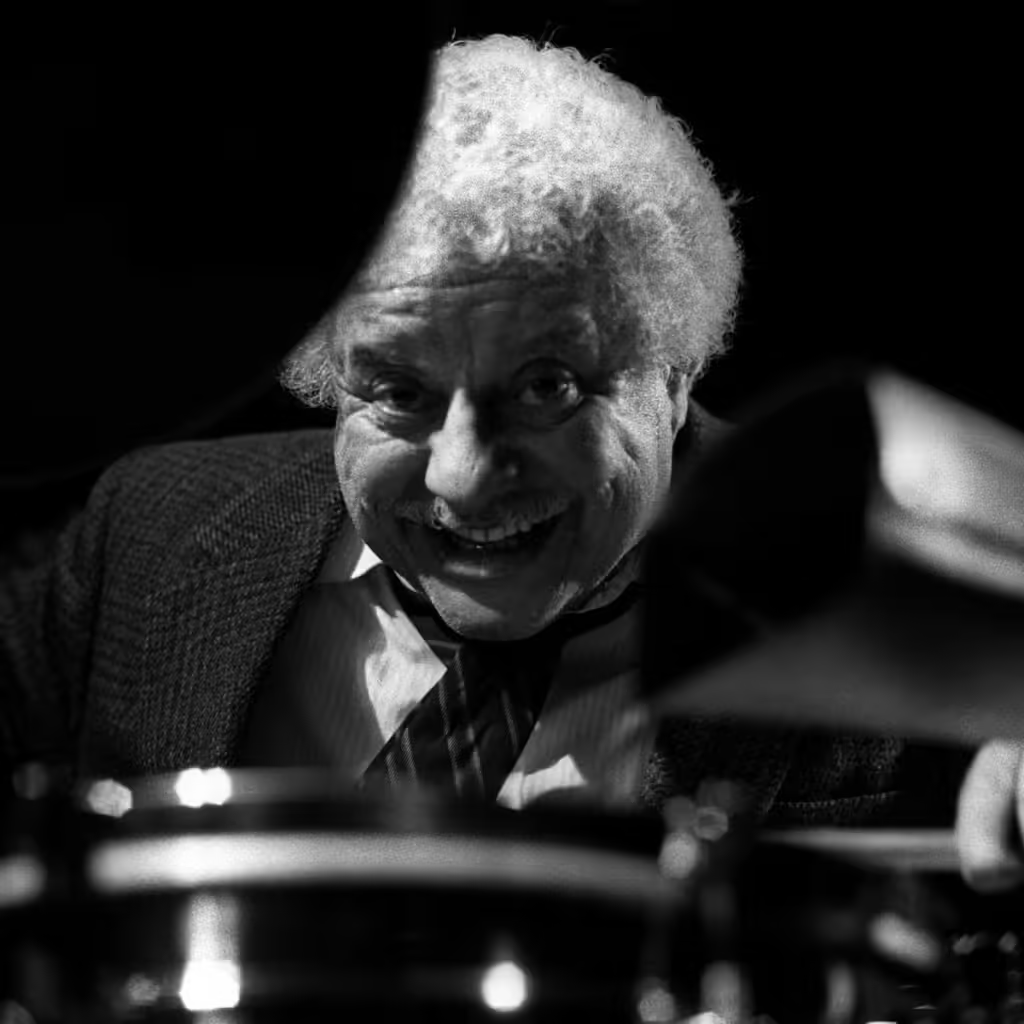
Table of Contents
Who Was Tito Puente?
Tito Puente, often hailed as the “King of Latin Jazz,” was a groundbreaking figure in Latin music. Renowned for his innovative fusion of styles and his ability to infuse traditional Latin rhythms with a big-band flair, Puente made an indelible mark on the music world. In 1948, he established the Tito Puente Orchestra, a band that would become a cornerstone of Latin jazz. His 1958 album, Dance Mania, achieved considerable commercial success and is regarded as one of his most influential works. Puente’s iconic tracks, such as “Babarabatiri,” “Ran Kan Kan,” and “Oye Como Va,” have left an enduring legacy. By the conclusion of his illustrious career, Tito Puente had cemented his status as a revered legend in both Latin music and jazz.
Early Life
Renowned jazz composer and bandleader Tito Puente, born Ernesto Antonio Puente Jr., came into the world on April 20, 1923, in New York City. Raised in the vibrant neighborhood of Spanish Harlem, Puente’s musical journey began at the age of 13. His early training encompassed a diverse array of instruments, starting with the piano and later including percussion, saxophone, vibraphone, and timbales—paired high-pitched drums. Following his formative years, Puente honed his skills through an apprenticeship with the prestigious Machito Orchestra. His burgeoning career was temporarily interrupted when he was drafted into the U.S. Navy, where he served during World War II.
Latin Music Sensation
Upon his return to New York in 1945, Tito Puente utilized funds from the G.I. Bill to pursue studies at the prestigious Juilliard School. By 1948, he had formed a band that would eventually be renowned as the Tito Puente Orchestra. During the 1950s, the orchestra began drawing large crowds, and Puente quickly emerged as a sensation in Latin music.
In 1958, Puente released his highly successful album Dance Mania, which marked a significant milestone in his career. This album was followed by a series of hit records, including notable tracks such as “Babarabatiri,” “Ran Kan Kan,” and “Oye Como Va.” Puente was celebrated for his innovative approach to Latin music, blending traditional Latin dances with jazz and other musical genres. His exploration of various Latin and Afro-Cuban rhythms, such as cha-cha, merengue, bossa nova, and salsa, further established him as a pioneering force in music.
Over his illustrious career, which spanned more than fifty years, Puente collaborated with leading jazz artists like George Shearing and Woody Herman, as well as prominent figures in Latin music. His later years saw him performing with numerous symphony orchestras, showcasing his versatility and enduring appeal.
Puente’s contributions to music earned him widespread acclaim and numerous awards, including five Grammy Awards. His first Grammy was awarded in 1979 for the album Homenaje a Beny, a tribute to Benny Moré. Although his 1976 album The Legend had been nominated for a Grammy in 1977, Puente received a total of eight nominations by the mid-1990s. In the 1980s, he secured two more Grammys for his traditional Latin jazz albums On Broadway and Mambo Diablo, and won a fourth Grammy in 1990 for Goza Mi Timbal.
In 1999, Puente was honored with an honorary degree from Columbia University. The following year, he received a Latin Grammy Award for Best Traditional Tropical Latin Performance for Mambo Birdland, marking his fifth Grammy accolade.
Other Projects
Beyond his musical career, Puente was deeply committed to supporting the Latin community throughout his life. In 1979, he established a scholarship fund for Latin percussionists at the Juilliard School, a project he had long envisioned. Reflecting on the initiative, Puente remarked, “The scholarship was a dream of mine for a long time. In the Latin community, we have a lot of gifted youngsters who don’t get an opportunity to develop their talent because of a lack of money. Long after I’m gone, the fund will be helping kids.”
Over a decade later, Puente’s impact continued to resonate through popular culture. Oscar Hijuelos featured a character inspired by Puente in his 1989 novel The Mambo Kings Play Songs of Love, and Puente himself appeared as a character in the 1992 film adaptation of the book. During this period, Puente also made notable guest appearances on several television shows, including The Simpsons.
Death and Legacy
By the culmination of his extensive career, Tito Puente, often hailed as the “King of Latin Jazz” or simply “El Rey,” had left an indelible imprint on popular culture. His contributions included over 100 albums and more than 200 compositions, establishing him as a venerated figure within both Latin music and jazz communities.
Puente passed away on May 31, 2000, at the age of 77 in a New York City hospital, where he was awaiting heart surgery. His passing elicited a profound outpouring of grief from fans worldwide, many of whom queued for days to pay their respects to the renowned bandleader. He is survived by his wife, Margaret Acencio, with whom he shared 30 years; their two children, Tito Jr., a musician, and Audrey, a newscaster; as well as a son, Richard, from his previous relationship with Ida Carlini, who is also a musician.
